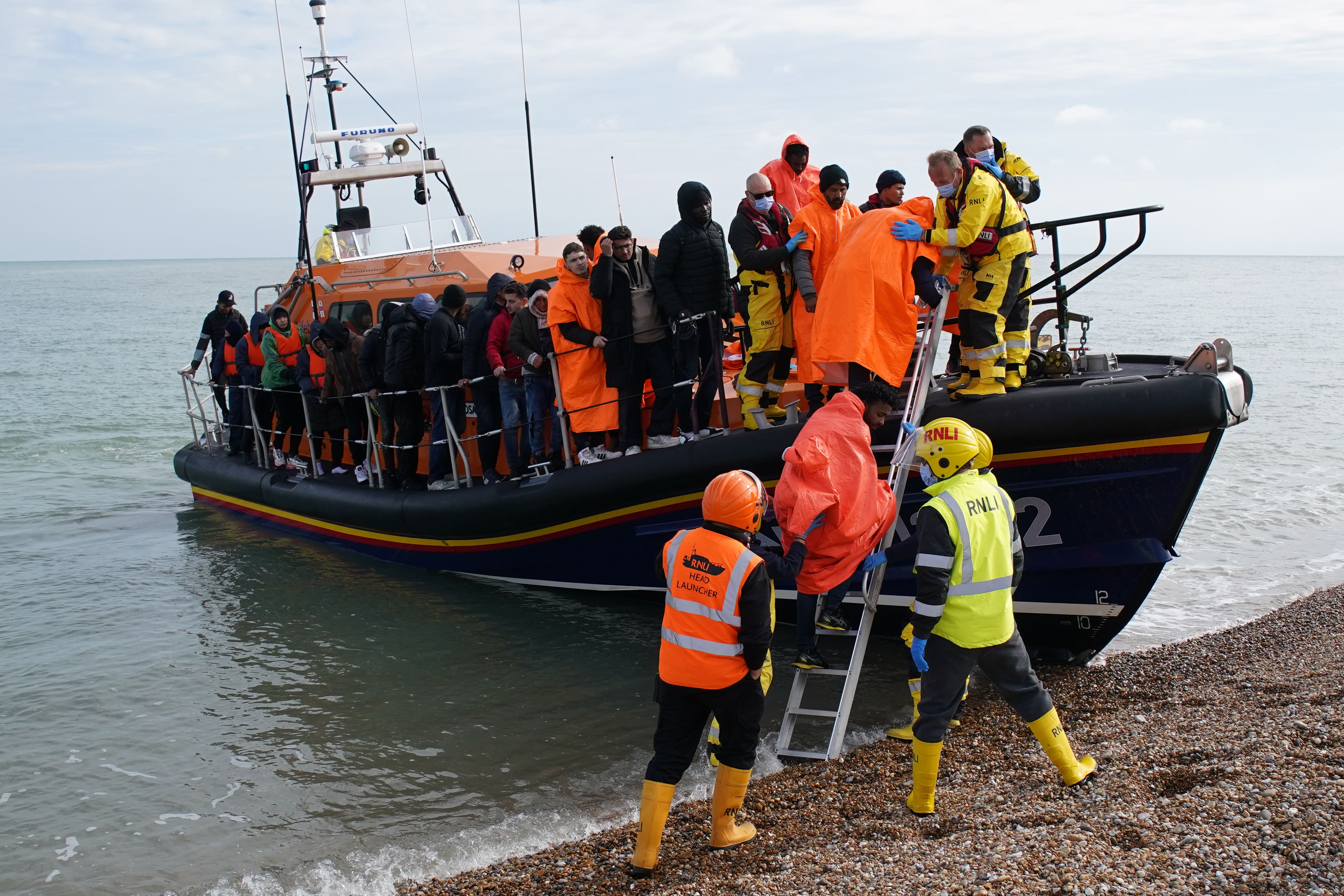The problems at Manston and how the Government is tackling the migrant crisis
The Manston short-term holding facility is now where security and identity checks are carried out on migrants after they arrive in the UK.

Home Secretary Suella Braverman will face MPs in the Commons on Monday to be questioned over the problems at the Manston migrant processing centre.
As the Channel crossings crisis deepens and the number of arrivals continues to grow, concerns about the site in Kent have been propelled into the spotlight as the Home Office came under fire amid criticism of overcrowding and poor conditions.
– What is the Manston migrant processing centre?
The Manston short-term holding facility, on a disused airfield near Ramsgate in Kent, opened in January and used to be the Ministry of Defence (MoD) fire, training and development centre.
It is now where security and identity checks are carried out on migrants after they arrive in the UK having crossed the Channel. Detainees are only meant to be held there for a maximum of 24 hours before they are moved onto longer-term accommodation, which is currently hotels.
When the plan was first announced last year, the Home Office initially said the secure site would be used to “hold migrants for up to five days”.
At the time then immigration minister Tom Pursglove said the site would provide “safe and secure accommodation” while initial checks are carried out.
– What concerns have been raised about the site?
Conservative MP Sir Roger Gale described the overcrowding at the facility in his North Thanet constituency as “wholly unacceptable” and suggested it may have been allowed to happen “deliberately”.
Last week the scale of the problems were laid bare by an immigration watchdog who warned the facility had already passed the point of being unsafe.
Chief inspector of borders and immigration David Neal told the Commons Home Affairs Committee he was left “speechless” by the conditions he saw at the centre, prompting him to write to the home secretary with his concerns.
He said the site was already “outstripping” capacity by at least 1,000 people and described the “pretty wretched conditions”, which included families having to sleep on the floor in marquees for over a month, adding that it was a “really dangerous situation”.
The revelations prompted charity the Refugee Council to call for “urgent” action and asked to meet with ministers to discuss proposals for tackling the problems.
The Sunday Times reported Ms Braverman had been accused of failing to act on legal advice received at least three weeks ago which warned migrants were being detained for unlawfully long periods – claims which were dismissed by the Home Office as “baseless”.
The Liberal Democrats have called on the Government to publish the legal advice reportedly ignored by Ms Braverman.
– What is the Government doing to tackle the Channel crossings crisis?
So far this year close to 40,000 people have made the treacherous journey from France, crossing the world’s busiest shipping lanes in dinghies and other small boats, provisional Government figures show.
The growing numbers are still a fraction of the volume of people going to mainland Europe. But the UK figures are also far higher than in 2021, when 28,526 made the journey.
The Government has stressed there is “no silver bullet” to tackling the migrant crisis.
Asked when new Prime Minister Rishi Sunak was going to get a grip on the situation, the Prime Minister’s official spokesman said: “I think all ministers involved have been clear that this is a very difficult, longstanding problem.
“We do have a package of measures, everything from the Rwanda deal down to what we are doing stopping around 28,000 crossings with French colleagues, and changing the laws to make it easier to crack down on the criminal gangs that are exploiting people.
“We do want to proceed with the Rwanda policy, which we believe will have a significant deterrent effect. But there is a great deal of work that needs to be done across the board before we make further progress.”
Mr Sunak and Emmanuel Macron also pledged to “deepening” the partnership between the UK and France in a bid to render Channel crossings “completely unviable” during their first phone call together.
Bookmark popover
Removed from bookmarks